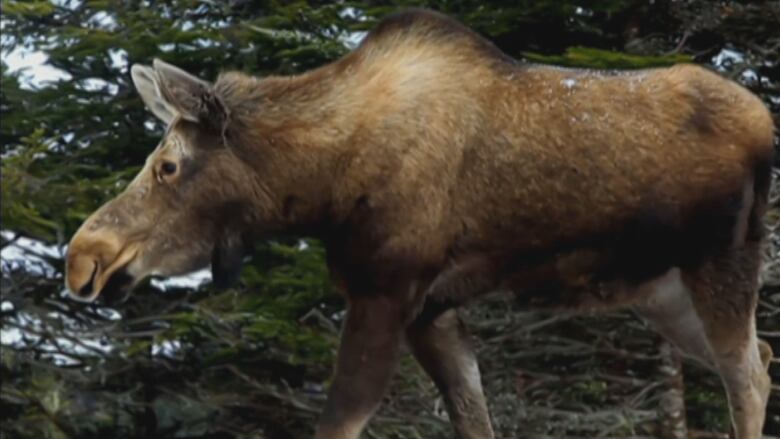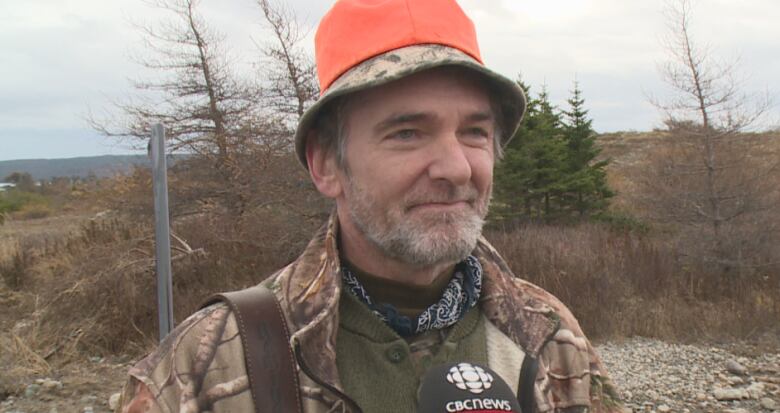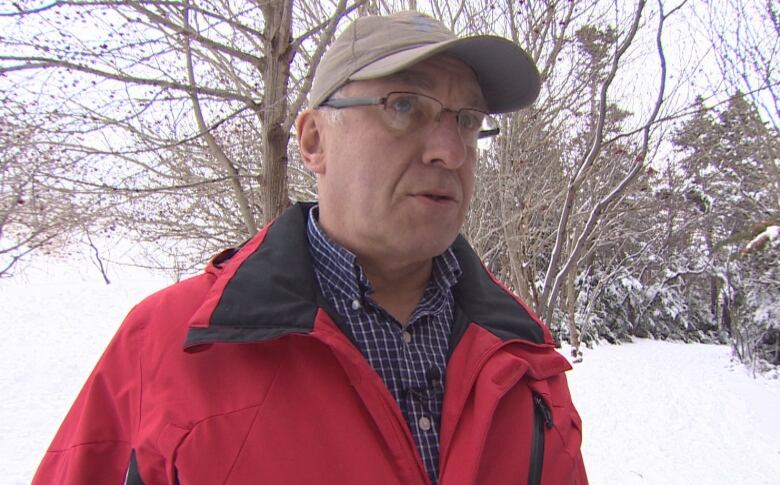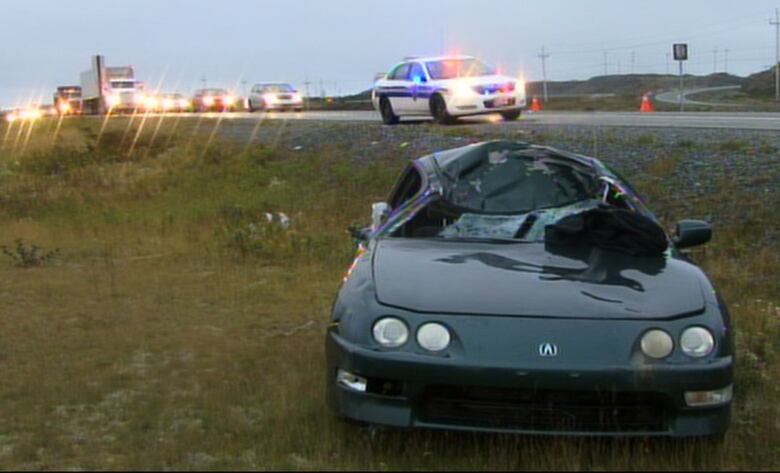Moose licences cut by nearly 2,500 but is that enough?
Hunters want even fewer licences, but people hurt in moose collisions feel differently

Some Newfoundland and Labrador hunters are warning that the provincial government didn't go far enough in reducing the number of moose licencesit will issue this year.
The government announced Tuesday that 2,470 fewer licences will be awarded to resident hunters in 2018, largely because of concerns raised by outfitters and hunters.
BarryFordham,presidentof the Newfoundland and Labrador Association of Hunters and Anglers, calls it "a good start," but notenough.
We are predicting we only have about five years left before this moose hunt is shut down.- Barry Fordham
Fordhamsaid about 30,000licencesare still being issued and with a 60 per cent success rate, the moose population can't sustain that kind of pressure.
"We are predicting we only have about five years left before this moose hunt is shut down as we know it."

"I guess something is better than nothing, but by and large the amount they've reduced it by is very minimal," said DwightBlackwood, editor of Newfoundland Sportsman magazine. He thinks the number should have been reduced by 10,000.
"We don't want the moose population to become extinct, and if this trend continues it will become extinct."
Both men are concerned that official estimates of the moose population at 110,000 are inflated by tens of thousands, and that it is hard to get a good count because of cuts to science programs.
"I don't believe myself that government has any real science," said Fordham, who applauded the move to increase aerial surveys from five to seven a year.

But he said investing in drone technology might be a better way of getting a more accurate picture of the moose population.
Moose are on a decline across North America, he said, because fewer calves are being born. There have also been warnings from hunters that moose are being killed by predators such as coyotes and wolves.
Who has the government's ear?
Fordham and Blackwoodsaid government is under pressure from the Save Our People Action Committee (SOPAC) which represents people injured or killed in moose-vehicle collisions on the highway.
The founder of that group, Eugene Nippard, told CBC Radio's CrossTalk on Thursday that he will continue to lobby for more moose to be killed in the annual hunt.
"Last summer we were averaging three accidents a day ... and we were averaging two fatalities a year," Nippard said.
"There shouldn't be any reduction unless the government is going to do something to protect us."

The government is not reducing licencesin hunting zones along the Trans-Canada from St. John's to Clarenville and from Gander to Grand Falls but Nippardsaid more fencing is needed along the highway to keep moose off.
"My friends and my family are more important to me than a damn moose."
Dwight Blackwoodsaid it's getting more unusual to spot a moose on the side of the highway, even on the Northern Peninsula where moose were a hazard.
"I actually counted 58 in a 15-kilometrestretch ... eight or nineyears ago," he said. "Now you go up there you are lucky to see one."
The government, meanwhile, has said it is trying to strike a balanced approach to satisfy hunters and outfitters, and drivers concerned about safety.
March 29 is the deadline to apply for a big game licence.
With files from Here & Now and CrossTalk












_(720p).jpg)


 OFFICIAL HD MUSIC VIDEO.jpg)
.jpg)



























































































